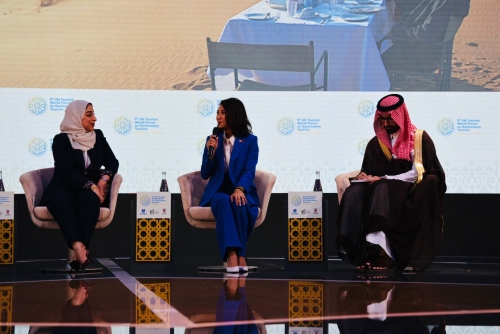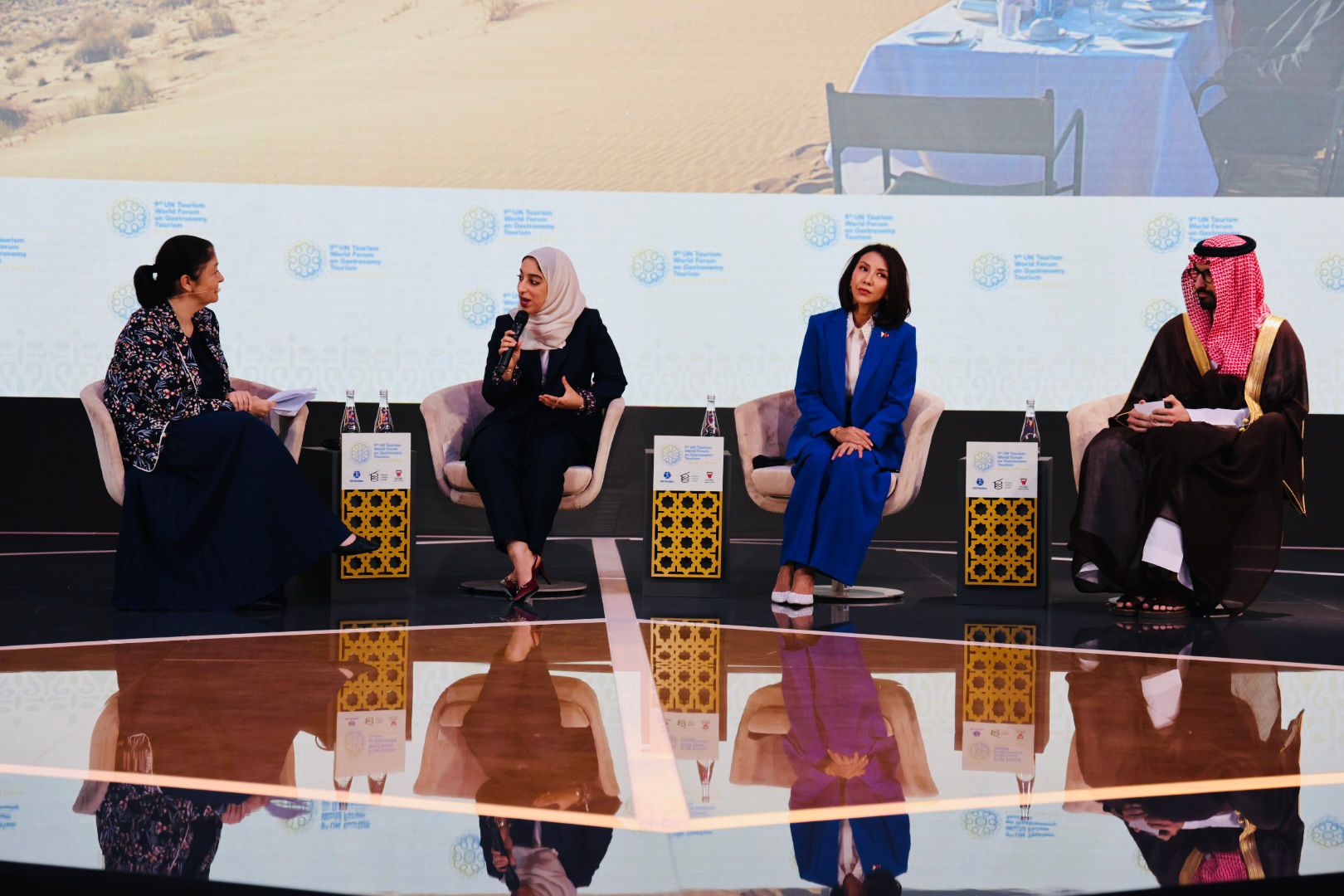Gastronomy Tourism Key to Cultural and Economic Growth: Expert Panel at UN Gastronomy Tourism Forum in Bahrain
Ashen Tharaka
TDT| Manama
A high-level panel at the 9th UN World Forum on Gastronomy Tourism in Bahrain concluded that gastronomy tourism is not just a cultural bridge but also a significant economic driver.
Emphasizing the importance of sustainability, collaboration, and innovation, the panellists highlighted how well-structured policies can empower local communities, promote cultural heritage, and drive economic diversification.
Moderated by Sandra Carvao, Director of Market Intelligence, Policies, and Competitiveness at the UNWTO, the panel featured Bahrain’s Minister of Tourism, H.E. Fatima Al Sairafi; the Philippines’ Tourism Secretary, H.E. Christina Garcia Frasco; and Saudi Arabia’s Deputy Minister of International Affairs, H.E. Sultan AlMusallam.
Empowering Local Communities in Bahrain
H.E. Minister Fatima Al Sairafi underscored the role of gastronomy in Bahrain’s cultural identity and economic landscape. “Gastronomy tourism connects the public and private sectors while empowering local communities through sustainable practices and supply chain integration,” she said.
The Minister pointed to Bahrain’s 10% growth in accommodations and food services, emphasizing the country’s unique culinary offerings and the talents of its local chefs. “Our chefs are not only skilled but are also champions of sustainability, engaging with local, regional, and international communities,” Al Sairafi added.
Regional Collaboration in the Philippines
H.E. Tourism Secretary Christina Garcia Frasco shared the Philippines’ approach, which integrates gastronomy tourism into its National Tourism Development Plan. She spotlighted the Cebu Call to Action, a framework developed during the UNWTO Regional Gastronomy Forum, which prioritizes sustainability, public-private partnerships, and support for local farmers and chefs.
“Gastronomy tourism increases the value proposition of destinations, uplifting local economies while ensuring sustainable practices,” Frasco noted, adding that over 54% of travellers consider gastronomy a key reason for their journeys.
Saudi Arabia’s Holistic Vision
H.E. Deputy Minister Sultan AlMusallam highlighted Saudi Arabia’s Vision 2030 strategy, which incorporates gastronomy to offer holistic tourism experiences.
“Gastronomy is not only a representation of culture but also a $1 trillion global industry, projected to grow to $4 trillion by 2032,” AlMusallam said. He showcased Saudi Arabia’s integration of cultural heritage sites like UNESCO-listed Diriyah with traditional culinary offerings to provide tourists with an immersive experience.
The Deputy Minister also discussed the role of the Saudi Culinary Commission in enhancing the country’s gastronomic identity, focusing on collaboration between culture and tourism sectors.
A Collective Vision for the Future
The panel concluded with a shared vision of gastronomy tourism as a vital element of sustainable and inclusive growth. Addressing challenges like food waste and the need for stronger policy frameworks, the discussion reaffirmed the sector’s potential to drive innovation, foster cultural exchange, and support local economies.
This session reinforced Bahrain’s leadership in global gastronomy tourism, positioning the Middle East as a rising force on the international culinary stage.
A high-level panel at the 9th UN World Forum on Gastronomy Tourism in Bahrain concluded that gastronomy tourism is not just a cultural bridge but also a significant economic driver.
Related Posts


